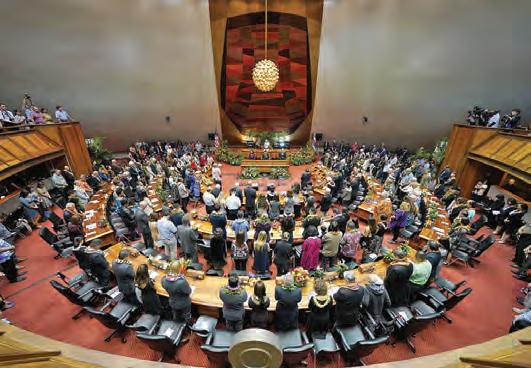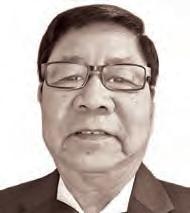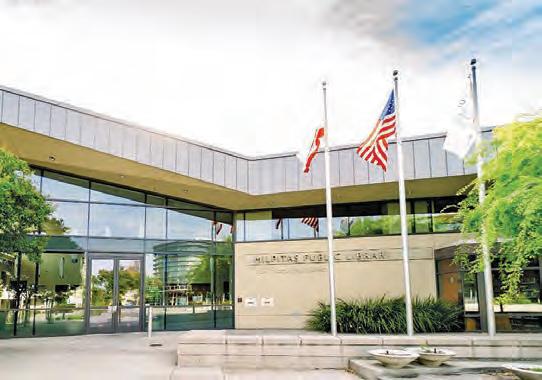












In a nutshell U.S. citizenship affords legal rights to an individual to be included in the “body politics” of America and naturalization is the process that gives foreign born individuals these same rights and inclusion in their new adopted homeland. Naturalization has been the pathway used over and over again in what essentially is an “immigrant” nation. Without naturalization, American just wouldn’t be the same as it is today or historically.
Prior to the 1960s, there was bias as to who could become a naturalized citizen, mostly in favor of whites from western and northern Europe. In 1965, the Immigration and Nationality Act ended de facto discrimination and increased naturalization to include other parts of the world.
American history shows denaturalization has been used as a political weapon like during the McCarthy era from 1947-1957 against suspected communists when some 20,000 Americans were denaturalized. Since then, denaturalization has been rarely used only against alleged spies, war criminals and enemies of the state, people who have lied during the naturalization process or other extreme circumstances.
Fast forward to 2025, Trump through his DOJ wants to “maximally pursue” denaturalization of American citizens potentially beyond extreme circumstances as used previously and possibly use “moral character” loopholes as a way to revoke citizenship. The new DOJ criteria for denaturalization is written broadly with little defined parameters that could be subjectively interpreted, which could be concerning for those who do not fit these previously extreme situations used in the past.
What makes matters worse is that immigration is a civil process and immigration proceedings do not guarantee the right to legal representation (like in criminal proceedings) to argue broad and subjective areas. Those who are subject to deportation or any other immigrant proceedings like denaturalization must hire their own lawyer and often do not have the financial means to do so.
Should denaturalization elevate to how it was used politically during the McCarthy era, we could see Americans afraid to speak their minds should they have dissenting opinions from the Trump administration. Certain groups of naturalized citizens could then become targets under such a climate – journalists, activists, academics, students, labor organizers, artists, writers and politicians. This thwarts freedom of speech and democracy and eventually transforms the country itself to one that some Americans have been fearing even before Trump’s second term – autocratic rule.
Trump’s denaturalization threat is yet another tool in his anti-immigrant, xenophobia kit of policies that include his attempt to end birthright citizenship, go after and deport green card holders or lawful permanent residents for past criminal offenses already served, and undocumented migrants who in some cases are going through the process seeking asylum but being deported. Trump even tossed the idea during a recent Florida press conference that citizens born in the U.S. who’ve committed crimes could be deported and something he will be looking into next – “denationalization.”
(continue on page 2)
It’s a frightening time for immigrant families and communities across the United States. President Donald Trump is upping the ante on his controversial immigration agenda to include denaturalization of U.S. citizens. Shocking. In a DOJ memo, it states, “The Civil Division shall prioritize and maximally pursue denaturalization proceedings in all cases permitted by law and supported by the evidence,” adding that it should be among the division’s top five priorities. For our cover story, associate editor Edwin Quinabo reports on the historical use of denaturalization and who could be at risk of it today. Members in our community sound off on the dangers of weaponizing denaturalization. Also covered in the cover story is the latest maneuvering of Trump’s executive order to end birthright citizenship. As immigrant families are displaced and forced to move, HFC columnist Seneca Moraleda-Puguan describes in her article this issue that she has deeper compassion for such families. While her forced relocation from Switzerland back to the Philippines is due to her scientist husband’s project funding ending, she and her family find themselves leaving a place they’ve grown to love. Unexpected, sudden endings happen to all of us. Seneca accepts this new journey in an inspiring way, with surrender and trust in what God has in store for her and her family. Best of luck, Seneca. By now most of you have heard about the highly contentious Big Beautiful Bill becoming law. We have two articles on this. The first is our second editorial highlighting some of the features and calling for accountability in the next election. The second is an article “Trump’s Cruel and Unusual Democracy” written by HFC columnist Emil Guillermo. “Growing executive power is what this bill is about. It’s the transformation of the presidency into an authoritarian kingship,” Emil writes.


Publisher & Executive Editor
Charlie Y. Sonido, M.D.
Publisher & Managing Editor
Chona A. Montesines-Sonido
Associate Editors
Edwin QuinaboDennis Galolo
Contributing Editor
Belinda Aquino, Ph.D.
Design Junggoi Peralta
Photography
Tim Llena
Administrative Assistant
Lilia Capalad
Editorial & Production Assistant
Jim Bea Sampaga
Columnists
Carlota Hufana Ader
Rose Cruz Churma
Elpidio R. Estioko
Willie Espero
Emil Guillermo
Gary Hooser
Arcelita Imasa, M.D.
Seneca Moraleda-Puguan
J.P. Orias
Charlie Sonido, M.D.
Emmanuel S. Tipon, Esq.
Contributing Writers
Clement Bautista
Edna Bautista, Ed.D.
Teresita Bernales, Ed.D.
Sheryll Bonilla, Esq.
Dr. Dylan Bothamley
Serafin Colmenares Jr., Ph.D.
Linda Dela Cruz
Carolyn Weygan-Hildebrand
Amelia Jacang, M.D.
Caroline Julian
Max Levin
Raymond Ll. Liongson, Ph.D.
Federico Magdalena, Ph.D.
Matthew Mettias
Maita Millalos
Paul Melvin Palalay, M.D.
Renelaine Bontol-Pfister
Seneca Moraleda-Puguan
Jay Valdez, Psy.D.
HFC columnist Carlota Ader is back with her Community Parade sharing photos of cultural events, graduation and birthday parties. HFC columnist Rose Cruz Churma does a book review on “66 Ilocano Songs.” Churma said, “In commemoration of Buwan ng Wika next month (August 1 to 31), we are featuring this book to remind those with roots in the Philippines that retaining one’s native language is crucial to preserving one’s culture and identity.” We wholeheartedly agree.
In news, the University of the Philippines Alumni Association of Hawai‘i (UPAAH), the National Alliance for Filipino Concerns (NAFCON), the Hawai‘i Workers Center (HWC), and the Hawai‘i Public Health Institute present their second annual Hawaii Walk for Health happening on Aug 2, 8 am, at the Neal S. Blaisdell Park in Aiea. It’s a unique walk because it not only promotes health but a shared movement for justice, hope and healing during these turbulent times. Be sure to read our other columns and news.
Thank you for supporting the HFC. Visit our website thefilipinochronicle.com to get your free e-copy of each issue. For your advertising needs, contact us at: filipinochronicle@gmail.com.Until the next issue, Aloha and Mabuhay!

What Trump is doing is evoking real cutting fear. Americans feel unsafe that they could face deportation – citizens, legal residents and undocumented. This is a far stretch and expansion from Trump’s campaign vow to go after illegal aliens with criminal records.
Now we have millions of families with mixed resident status afraid to step out of their homes, not
Amado Yoro
Philippine Correspondent:
Greg Garcia
Neighbor Island Correspondents:
Big Island (Hilo and Kona)
Grace LarsonDitas Udani
Kauai
Millicent Wellington
Maui
Christine Sabado
Big Island Distributors
Grace LarsonDitas Udani
Kauai Distributors
Amylou Aguinaldo
Nestor Aguinaldo
Maui Distributors
Cecille PirosRey Piros
Molokai Distributor
Maria Watanabe
Oahu Distributors
Yoshimasa Kaneko
Shalimar / Jonathan Pagulayan
Advertising / Marketing Director
Chona A. Montesines-Sonido
Account Executives
Carlota Hufana Ader
JP Orias

Is Donald Trump a champion of working people as he portrayed himself to be in his second run at the presidency? All along large segments of the American electorate to begin knew this was a farce and just a campaign gimmick. Now, with Trump’s “One Big Beautiful Bill” becoming law and Americans digesting the features in it, there should be no doubt that Trump is not a populist.
• His signature One Big “Ugly” Bill will have at least 17 million Americans losing their health insurance because of changes to Medicaid.
• Because of cuts to Medicaid, hospitals and clinics, especially those in rural communities could experience high financial stress or close.
• Changes to the Affordable Care Act (ACA) and Medicaid are expected to lead to increased premiums, deductibles, and out-of-pocket expenses for most health insurance.
• Reduced Medicaid and increased uninsured is expected to cause over 500,000 healthcare job losses.
• The Center for American Progress and Arc said the bill will eliminate Medicare eligibility for certain groups of lawful immigrants who had previously contributed to the program.
• Millions – estimated between 3.2 to 22.3 million families nationwide – could lose some or all their SNAP (food stamp)
(From Deporting ....from page 2)
benefits.
• Utility costs for American households are expected to rise significantly. According to Climate Power, the bill’s policies, particularly the rollback of clean energy tax credits, are projected to raise average annual electricity costs by $110 per household by next year, with some states seeing increases of over $200.
These are only a few anti-populist features found in the “Big Ugly” bill that Trump signed into law. And the most convincing feature in the bill that shows Trump is not a populist president is all these features hurtful to average-to-poor Americans were made possible to give billionaires, the richest Americans and corporations a whopping $4.45 trillion in tax breaks, which politicos are calling the greatest transfer of wealth in modern American history.
Even more shocking and unconscionable is that this was done at a time when average and poor Americans are having the most difficult time financially with skyrocketing grocery prices, childcare, rising interest rates on credit cards, college loans, unaffordable housing and as job losses are creeping up nationwide.
The trail of misery and hardship this bill will leave will be heartbreaking. What will happen to chronically ill patients who cannot afford expensive life-saving medication as soon as their
show up to work or go to church. They’re afraid that a family member will be swept up in ICE raids in public spaces or show up at their home. Businesses are hurting in many immigrant communities. There’s an overall feeling of dehumanization, injustice and helplessness among not just select immigrants but Americans in general who have family and friends with mixed status.
Given who the majority of Trump’s immigration policies are targeting – mostly people of color from Latin American and Asian countries -- it’s not a stretch to claim that white nationalism is a part of what’s transpiring. Reports of widespread racial profiling by ICE in mostly minority-majority communities is just one example to support this claim of white nationalism at work.
Ultimately, what we’re experiencing in America today is the weaponization of our immigration system as a whole in order to maintain a white-majority America. The images and viral videos of minority
Medicaid gets cut? Where will rural Americans go whose closest hospital is 50-plus miles away and suddenly that hospital must be forced to close? In emergency situations, what happens? In both these examples, this bill literally could be a death sentence.
What about the working poor who already have jobs but do not earn enough to buy food for their children when their food stamps get reduced or cancelled? In the U.S., the richest nation in the world, we’ll be seeing increasing numbers of families go hungry.
Get a job? Supporters of the bill might say. Over 60% of Medicaid recipients already have jobs but jobs that do not offer medical insurance. A large percentage of others on Medicaid are disabled or who are caretakers to elderly or disabled persons cannot get a job.
The problem isn’t that people don’t want to work. The problem is that they can’t live off what work pays in many situations.
This reality of millions falling through the cracks speaks to the heart of our capitalistic system. There’s always been an unwritten understanding that Americans will support capitalism and the free market as long as there are safeguards in place to ensure that the most vulnerable – an inevitability in such an economic system – have in place some safety nets available through our government. The idea
communities being rounded up are clearly meant to send a message of fear to the countries where these deportees are from. And that message is: “You are not welcomed here!”
If in fact Trump were only interested in deporting hardened undocumented criminals, he would not be expanding his agenda to include ending birthright citizenship, denaturalization, denationalization of Americans born in the U.S. who’ve committed crimes, going after green card holders and legal permanent residents or undocumented who have not committed any crimes. We also see this white nationalist agenda beyond immigration in Trump’s ending of DEI.
Immigrant communities and their supporters must continue to speak out, rally together, protest peacefully and fight the legal battles on immigration. What Trump would want is for immigrants to be afraid and be silent. Fear, chaos and confusion are part of the strategy of his immigration agenda.
It’s shocking how far Trump went
behind this is that we want to maximize prosperity and uplift fellow Americans left behind in an often-exploitive system. It’s been a kind of unwritten social contract. This “Big Ugly” bill undermines this social contract and longstanding unwritten understanding. In fairness to Trump and Republicans in this Congress, this undermining has been an ongoing process or erosion even while Democrats were at the helm.
But this specific bill unmasks the fact that the superrich have the power (via our corrupt political system) to do whatever they want and no longer be a party to any social contract that would benefit the workers they exploit.
There is no lucid way to describe this “Big Ugly” bill than to say that it is a betrayal to the American people. In fact, millions of MAGA themselves on Medicaid (many of them in districts with the highest rates of Medicaid) have been betrayed by the man they voted for.
There
accountability
Trump is a lame duck president and “not expected” to run again if the Constitution holds. Who made the passage of the Big Beautiful Bill possible? Republicans. And there must be accountability to those who made possible this disastrous, immoral bill beginning in the next midterm election.
from wanting to deport illegals with criminal records to denaturalizing and denationalizing Americans with “criminal wrongdoings” -- for now! It could get worse

By Edwin Quinabo
Is the McCarthy era of weaponizing denaturalization back? President Donald Trump has already threatened to deport his high-profile critics billionaire frenemy Elon Musk, NYC mayoral candidate Zohran Mamdani and long-time comic Rosie O’Donnell.
If it weren’t for a recently unveiled controversial Department of Justice (DOJ) memo, the President’s remarks would have been flippant rhetoric. But a DOJ memo marks a radical expansion of the president’s immigration agenda, a new shift in his plans to “maximally pursue” denaturalization of American citizens.
The June 11 memo states, “The Civil Division shall prioritize and maximally pursue denaturalization proceedings in all cases permitted by law and supported by the evidence,” adding that it should be among the division’s top five priorities.
About 25 million people are naturalized U.S. citizens. Denaturalization is not new but rarely used. From 1990 through 2017, there were only 305 cases of denaturalization, representing about 11 cases per year. During the first Trump administration, he opened a “Denaturalization Section” within the Justice Department’s Office of Immigration Litigation to investigate and prosecute naturalized citizens. His second administration is picking up where he left off but prioritizing it further, critics say.
The height of denaturalization came during the McCarthy era from 1947-1957 when those deemed un-American or communists were stripped of citizenship due to their political views. Two different tallies are widely cited: 1) over 20,000 were denaturalized during that era, and 2) over 22,000 were denaturalized annually during that era.
Landmark SCOTUS decision on denaturalization
The Supreme Court reeled back denaturalization in 1967, determin-
ing that, it was “inconsistent with the American form of democracy, because it creates two levels of citizenship.” The landmark Supreme Court ruling held that denaturalization is unconstitutional in most circumstances, unless an immigrant had “illegally procured” citizenship through fraud or other means.” Since then, the number of denaturalization cases plummeted to the single digits each year, and slightly higher in recent years.
Justice Hugo Black wrote in the court’s majority opinion, “Citizenship is no light trifle to be jeopardized any moment Congress decides to do so under the names of one of its general or implied grants of power.”
Legal scholars believe the recent DOJ memo is cause for concern because of its vague language could be weaponized to include whoever the Trump administration want to cast as not belonging here. Traditionally, denaturalization had been used in extreme cases on alleged enemies of the state, spies, war criminals or later to include those who committed fraud while applying to become a U.S. citizen.
The DOJ said that their denaturalization focus would be on criminals, but immigrant groups say that Trump also said he wanted to focus on mass deportation of undocumented with criminal records. But currently over 60% of those apprehended by ICE are undocumented migrants without criminal records.
Naureen Shah, director of government affairs for the ACLU’s Equality Division, said “anyone could be prioritized for denaturalization. It’s really chilling.”
Joyce Vance, a former United States Attorney, who is now a law professor, said of the DOJ’s vague priorities to denaturalize, “It could be exercising First Amendment rights or encouraging diversity in

hiring, now recast as fraud against the United States. Troublesome journalists who are naturalized citizens? Students? University professors? Infectious disease doctors who try to reveal the truth about epidemics? Lawyers?” Vance wrote. “All are now vulnerable to the vagaries of an administration that has shown a preference for deporting people without due process and dealing with questions that come up after the fact and with a dismissive tone.”
Some immigration attorneys say there is hyperbole around the new DOJ memo and insist that only people who lied about their U.S. applications should be concerned over denaturalization. Lucas Guttentag, a professor at Stanford Law School, said most naturalized citizens shouldn’t be alarmed, because of legal precedent and the relatively high burden of proof required to denaturalize.
“There’s a big risk of abuse of the denaturalization power here, but the Supreme Court, the courts generally, have been very protective of naturalized citizens,” Guttentag said. He adds that even under the broadest interpretation of the law, the lengthy judicial process would present a major hurdle to widespread denaturalization.
However, Amanda Frost, a law professor at the University of Virginia and director of the universi(continue on page 5)
ty’s immigration, migration and human rights program, said “in theory, almost every naturalized citizen could be at risk. That’s because errors in the naturalization process could be construed broad-
Filipino community opine on possible denaturalization escalating
Sergio J. Alcubilla III, Director of Community Engagement, ACLU of Hawai‘I, immigrated to the U.S. at 7 years old. His mother came to the U.S. in the 1970s to work as a nurse. “She gave birth to my youngest sibling in 1986 who was the first in our family to become a United States citizen. In 1988, my mother brought the rest of my siblings from the Philippines and in 1992, my mother became a naturalized U.S. citizen.”
Alcubilla said “We’ve recently seen how the Trump administration is using the idea of denaturalization to intimidate and silence those that hold opposing views, represent an opposing political party, or even criticize the administration. This is the danger and threat to our democracy, when President Trump can simply threaten to revoke citizenship based on viewpoints that he may not agree with.”
He mentions Trump’s threat to deport Mamdani and O’Donnell. “The strength of this country is that we can all come from multiple viewpoints and have the freedom to express it without fear that the government will silence us. Whatever the motivations may be of this administration, the effects are clear. It sows fear of retribution and encourages silence of dissent. To the ACLU of Hawaiʻi, dissent is patriotic and makes for a stronger union.”
Raymund Llanes Liongson, Ph.D., retired college educator, a naturalized U.S. citizen, raises multiple layers of problems that can arise from Trump’s new aim to aggressively denaturalize American citizens. “The Trump administration’s plan to revoke U.S. citizenship from nat-
ly, and the labyrinthine road to naturalization is ripe for missteps. But it’s unclear if the government would actually bring a case based on minor omissions or mistakes.”
uralized American citizens is very concerning and disturbing. This raises several issues like the overreach of Executive Power, due process violation, erosion of democratic protection, separation of families, creation of fear and uncertainty among naturalized citizens. And with the vague standards and language, are citizens holding dual citizenship at risk as well?” he said.
On Trump’s possible motivation to push denaturalization with greater intensity than previous administrations, Liongson said “This is a racially motivated, a xenophobic act to rob non-white immigrants of their legally acquired status. It has nothing to do with the commission of crimes. It is all about denying immigrants their rightful place in this country.”
Gloria Salvador, Moanalua, was naturalized at the same time her parents became naturalized U.S. citizens. She was 12 years old at the time. “We have yet to see if denaturalization efforts will rise to the scope of mass denaturalization. Trump is mentioning it through his DOJ and public statements to test public opinion on the matter. He did that with mass deportation during his campaign and got positive feedback from his base because he stressed the criminal aspect. He is doing the same, highlighting the criminal aspect of denaturalization, those who committed fraud in their application process.”
Salvador adds, “however, we all need to be concerned because look what he did with mass deportation, Trump expanded it beyond criminals. With the DOJ’s vague provisions, Trump could very well weaponize it to include all kinds of reasons like those who oppose his policies, people who pro-
test or speak up against his draconian immigration agenda. It’s scary what’s happening in the country. Immigrants, both legal and undocumented are being attacked. We’re already hearing about green card holders being deported for small past offenses, U.S. citizens being racially profiled and arrested, and now this denaturalization threat.”
Salvador said after her parents became U.S. citizens, her brother was born in Hawaii and is the only sibling among four of them who is a natural-born citizen. She said ending birthright citizenship is another disturbing policy that Trump is pursuing.
“For example, in my family’s case if ending birthright citizenship back then was the law of the land, it could have been a matter of timing that my natural-born U.S. citizen brother wouldn’t have become a citizen. If he was born before my parents became citizens. He was born two years after my parents became citizens. But what if the timing didn’t work out. My parents were legal immigrants at the time so he could have been naturalized, but what if they weren’t. Our family’s life would have been completely different,” Salvador said.
As a matter of one of his first orders of business in his second term, Trump signed an executive order to end birthright citizenship in the U.S. for children of illegal immigrants as well as immigrants legally but temporarily present in the U.S. The executive order aims to challenge the prevailing interpretation of the Citizenship Clause of the 14th Amendment.
If Trump’s executive order is successful in the
“All these Trump immigration policies – plans to denaturalize immigrant U.S. citizens, thoughts of revoking birthright citizenship, mass deportation, internment in concentration camps, deportation to foreign countries not of one’s country of origin -- are unjust, inhumane, unlawful, and possibly unconstitutional. These policies are not to make America great again. That motto is deceptive and false. In reality, these policies are designed to make America White again. The Trump immigration policies are consistent with the growing assertion of White supremacy across the country, and it is urgently imperative that the nation recognizes this. Such an assertion is racist, immoral, illegal, and un-American. I am concerned that under an authoritarian and racist regime, unless you are White, you are not safe.”
– Raymund Llanes Liongson, Ph.D. retired college educator, naturalized U.S. citizen
courts, it would not be retroactive but only apply to individuals born 30 days after the order was issued on February 19, 2025.
The latest legal fold: on June 27, 2025, the Supreme Court decided on birthright citizenship limiting the ability of lower-court judges to issue universal injunctions to block such executive order nationwide. SCOTUS did not rule on the interpretation of the Citizenship Clause of the 14th Amendment.
But on July 10, 2025, a New Hampshire federal district judge issued a preliminary injunction to prevent federal officials from enforcing the order nationally. Judge Joseph LaPlante was able to avoid that limit on issuing a nationwide injunction by certifying the case as a class action lawsuit encompassing all children affected by the birthright order, following a pathway suggested by the Supreme court ruling.
While the legal maneuvering continues over birthright citizenship that most legal experts believe is a losing uphill battle, the
attempt itself by the Trump administration to pursue such a legal challenge has some questioning his motivation.
Alcubilla, an attorney, opposes Trump’s ending birthright citizenship executive order. “The 14th Amendment is clear: no politician, including the President of the United States, is above the law and can decide unilaterally who among those born in this country is ‘worthy’ of citizenship. This executive order goes against not only the U.S. Constitution but over 100 years of Supreme Court precedent. Denying citizenship to children born in this country denies them the right to be full members of American society and to live freely in the country they are born.”
Public opinion on immigration is turning
A new Gallup poll released this week found a big swing in Americans’ opinions about immigrants in 2025. Gallup wrote, “Americans have grown markedly more positive toward immigration over
By Gary Hooser
Responding to the DOGE and the Big Beautiful Bill by passing a law giving 4 Hawai’i politicians $50,000,000 to dole out to their friends in the nonprofit world – is a crazy bad idea. Allowing them to do it behind closed doors is political arrogance on steroids.
Here’s how it works.
SB933CD1 grants to 4 legislators (2 House and 2 Senate) the power to give out $50,000,000 in grants to nonprofits and excludes the process from the Sunshine Law.
The actual language contained within SB933CD1:
(b) In selecting recipients and awarding and administering grants funded by the appropriation contained in section 3 of this Act, there is established an evaluation and selection committee to oversee the evaluation and selection of, and determine grant award amounts to, nonprofit applicants.
The evaluation and selection committee shall be composed of the following members:
(1) Two senators appointed by the president of the senate; and (2) Two representatives appointed by the speaker of the house of representatives.
“The meetings of the evaluation and selection committee shall not be subject to part I of chapter 92, Hawaii Revised Statutes.” (Sunshine Law)
SB933CD1 requires but not really – that grants be related to budget impacts/ cuts currently being implemented by the federal administration.
“To be eligible for a grant funded by the appropriation contained in section 3, applicants shall be recipients or providers that have sustained a reduction or termination of their federal funding, or if the applicant is not a direct federal funding recipient or provider, the applicant shall primarily serve populations that have been negatively affected by reductions or terminations of federal funding.”
SB933CD1 is essentially a “gut and replace” (IYKYK) that started as
(COVER STORY: Filipinos Reject ....from page 5)
the past year, with the share wanting immigration reduced dropping from 55% in 2024 to 30% today. At the same time, a record-high 79% of U.S. adults say immigration is a good thing for the country.” A record-low, 17 percent, view immigration as a “bad thing.”
In the same poll, it shows a steep drop among Republicans wanting immigration levels into the U.S. decreased – falling from 88% in 2024 down to 48% in June. The same survey showed an uptick in Republicans who see immigration as having a positive effect on the U.S.
The poll’s findings were based on a June 2-26 Gallup poll of 1,402 adults in the United States. Gallup pollsters said the results mark a reverse in a four-year trend, when con-

a short form (a bill empty of content). It was then amended in the House and Senate, and ultimately assigned to a Conference Committee where it was totally rewritten with content not included in any previous version.
There was no public committee discussion or disclosure on the decision to create what today is SB933CD1.
At the final Conference Committee meeting the Chairs very briefly summarized the content and intent of SB933CD1, the committee voted to approve, and that was it.
At no time was there any mention of the extraordinary power and discretion being granted to the 4 member House/
cerns about immigration began rising in 2021.
Alcubilla said “President Trump’s harsh immigration policies are backfiring in the court of public opinion and as recent polls have shown, many Americans are seeing the importance of immigration and the need for a more humane immigration policy. Although I have family members that voted for President Trump and we may not agree on the direction of this administration’s current policies, what makes this country great is that we are free to disagree. Now, simply disagreeing puts you in danger of losing citizenship.”
Liongson opined, “All these Trump immigration policies – plans to denaturalize immigrant U.S. citizens, thoughts of revoking birthright citizenship, mass
deportation, internment in concentration camps, deportation to foreign countries not of one’s country of origin -- are unjust, inhumane, unlawful, and possibly unconstitutional.
“These policies are not to make America great again. That motto is deceptive and false. In reality, these policies are designed to make America White again. The Trump immigration policies are consistent with the growing assertion of White supremacy across the country, and it is urgently imperative that the nation recognizes this. Such an assertion is racist, immoral, illegal, and un-American. I am concerned that under an authoritarian and racist regime, unless you are White, you are not safe.”
Liongson mentions statistics: the White popu-
$50,000,000, to meet with potential recipients of this money in private, and to make the ultimate decision on who gets the money in private.
The whole process of drafting and approving the language of the bill creating this extraordinary power was also done in private, contrary, of course, to their own House/Senate rules and in violation of the State Constitution.
Article III of the State Constitution states in part:
Senate committee, nor was the sunshine law exclusion publicly disclosed.
You can read about the bill here: https://www. capitol.hawaii.gov/session/measure_indiv.aspx?billtype=SB&billnumber=933&year=2025
The Conference Committee report posted as part of the official record, normally provides a summary of pertinent actions taken by the Conference Committee. In the case of SB933CD1 – this report contains no mention of the special powers granted to the 4 legislators and sunshine law exclusion.
In summary: The Hawai’i Legislature passed SB933CD1, granting four of their own members the power to give away
lation in the United States is decreasing as a percentage of the total population, and in some cases, decreasing in absolute numbers. While still the largest racial group, the White population’s share has been declining due to increased diversity and population growth among other racial and ethnic groups. According to the 2020 census, 61.6% of Americans, or 204,277,273 people, identified as White alone. This represented a national decrease from a 72.4% white alone share of the US population in the 2010 census. He said, “this demographic trend is bothering White supremacists, and this is why all these immigration developments are taking place.”
Salvador expressed sadness over immigrants working as ICE agents.
“Every meeting of a committee in either House or of a committee comprised of a member or members of both Houses held to make a decision on matters referred to the committee shall be open to the public.”
Clearly, the Chairs of the /Senate House Conference Committees assigned to SB933CD1 met together in private (virtually or in person), prior to the public meeting, for the purpose of making a decision.
There really is no other way these decisions could have been made – SB933CD1 did not just appear out of thin air.
GARY HOOSER is a former Hawaiʻi State Senator and Majority Leader.
“In social media I see – in spite of facial coverings –some ICE agents who appear to be Asian or Latino. I think the widespread ICE raids, as vast and intense as they are, are motivated by a white supremacist agenda. The sad part is that these ICE agents who are minorities don’t see the harm they are doing to their own communities of color. Deportation of illegals is one thing, and acceptable in some cases that are reviewed and go through due process, but not what we see happening. The racial profiling is blatant racism. Trump’s collective anti-immigrant agenda, all of his policies reviewed as a whole, I think when you examine them it’s not a radical idea to say a form of ethnic cleansing is taking place.”
AStatewide Call to Elevate Filipino American Executive Leadership Across Hawai‘i’s Business and Civic Sectors
The Filipino Chamber of Commerce Hawai‘i (FCCH) is proud to announce the official launch of applications for the 5th Cohort (the E Class) of the FCCH Fellows Program, a groundbreaking leadership initiative designed to increase Filipino American representation in executive leadership roles across the state.
As one of the largest and fastest-growing communities in Hawai‘i, Filipino Americans make up nearly 25% of the population, yet remain vastly underrepresented in the highest levels of leadership in boardrooms, C-suites, and public decision-making bodies.
“We are often the back-
bone of Hawai‘i’s workforce — in healthcare, hospitality, education, and government — but we are still missing from the rooms where decisions are made,” said Dr. Constancio Paranal III, Vice President of the Filipino Chamber of Commerce of Hawai‘i.
“The FCCH Fellows Program was built to change that reality.”
Founded in 2020, the FCCH Fellows Program is a flagship initiative that equips Filipino American professionals in Hawai‘i with the tools, networks, and support systems necessary to ascend into executive and civic leadership roles.
The program includes:
• Executive mentorship and coaching
• Leadership development workshops
• Board readiness training including strategic and critical thinking skills

• Cultural identity and civic engagement components
• Access to a strong, intergenerational statewide network
Now in its fifth year, the E Class will be the first cohort to formally expand its recruitment across all Hawaiian Islands, emphasizing the importance of diverse geographic representation and equity in leadership development.
“Every Island. Every Voice. Every Filipino. This is our theme and our prom-
Last month, the Philippine Consulate in Honolulu welcomed the latest batch of Filipino teachers who arrived in Honolulu to teach at various schools across the state.
Consul General Arman Talbo welcomed 82 newly arrived teachers from the Philippines who are in Hawaii under the Exchange Visitor Program by the Hawaii Department of Education (DOE).
Organized by DOE, the welcome and post-arrival orientation was held at the Honolulu Airport Hotel on June 27.
Talbo expressed the hope for teachers to acclimate well to life in Hawaii and bring pride to the country. He also encouraged the teachers to participate in community engagements and assured them that the Consulate is ready to provide service and assistance.
Moreover, Consul Grace Bulos also briefed the teachers on the Consulate’s consular and assistance services.
Several presenters from non-profit organizations and vendors were also present at the orientation, such as banking, medical, and telecommunications. Several Filipino-American organizations were at the event to share their mission and activities.
Earlier in June, the Consulate held a lecture series on Effective Writing and Oratory for Public School Teachers aimed at Filipino teachers under the J1 program in Hawaii.
The event was facilitated by Dr. Aurelio Agcaoili, Chair of Indo-Pacific Languages and Literatures (IPPL) at the University of Hawaii at Manoa (UH Manoa).
The lecture was held at the UH Manoa campus and organized by UH Manoa, IPPL, Ilokano Language and Literature Program, with support from the Philippine Consulate General in Honolulu, as part of the continuing professional development for Filipino teachers in Hawaii.
ise for the E Class,” said Su Lazo, Committee chair and program advisor.
“It’s time we build a future where Filipino Americans are leading in every sector, and from every corner of Hawai‘i.”
This year’s launch includes a dual call to action.
FCCH invites organizations across Hawai‘i to identify, nominate, and sponsor rising Filipino American professionals in their teams. Employer participation is encouraged to help build long-term organizational equity and com-
munity impact.
Filipino American professionals with a bold vision to lead, a passion to uplift the community, and the drive to shape Hawai‘i’s future, FCCH encourages such professionals to apply.
Fellows will gain the knowledge, mentorship, and statewide connections to move confidently toward boardrooms and executive roles.
Interested applicants can apply at https://filipinochamber.org/fellows. The application deadline is August 10, 2025.
The application is open to Filipino Americans residing in Hawai‘i across all islands.
The Filipino Chamber of Commerce of Hawai‘i is a nonprofit, volunteer-driven organization founded in 1954 with a dedicated mission to promote and empower Filipino-owned businesses, professionals, and community leaders throughout the state of Hawai‘i.

By Carlota Ader
Take a peek at this issue’s Community Parade covering various events from graduations, birthdays to cultural events in the Filipino community in the past few weeks.


By Emil Guillermo
The tragic flooding in Texas happened as if on cue to remind us all about the value of government.
You may not like the idea of paying taxes for things like modern, hightech emergency warning systems. Or the best weather information in a constantly changing climate environment. Or for disaster relief, that is there when you need it.
But after seeing the disaster in Texas, it’s clear we forget: We can be penny-wise and pound-foolish when we choose not to spend in the public good.
Spending on the right things, at the right time, saves lives.
Going cheap puts your citizens at risk.
This realization comes on the heels of that Trump megabill, where we cut government so deep with DOGE, and then went even further. The billionaires got their tax cut.
The rest of us cross our fingers for the negative benefit.
In exchange for the tax cuts to the rich, others will die when their Medicaid goes away.
One estimate based on similar Medicaid changes in the past shows a bestcase scenario of a minimum of 13,000 dead nationwide.
Double it to get a sense of the worst case.
13,000 dead is a lot more than the victims of the Texas flood, which as I write, is over 100.
The lesson? There’s no reason why anyone should die in America if we weren’t so penny smart and pound-foolish when it comes to taxes.
Put it all together, and we have a memorable weekend. Texas happened almost immediately after Trump signed his megabill--the one that cuts services like FEMA
and weather scientists at NOAA.
With Donald Trump’s signature of his megabill in the broad daylight of the Fourth of July, there was no need for fireworks.
What was there to celebrate?
It’s now all out in the open.
The House approved the Senate bill, virtually unchanged.
And then the president signed the bill for all to see on the very day we celebrate America’s Declaration of Independence.
Irony of ironies. On a day of freedom, the president signs a bill that saddles us with a bankrupt America.
How do you deal with a historic $37 trillion national debt?
Pay it back? Nope. You make things harder by cutting revenues with those historic tax breaks.
There should be no doubt who to blame when the ironic crud hits the fan.
Thats “crud,” as in my forced acronym for Trump’s legislative descent toward a “Cruel and Unusual Democracy.”
He vowed to end the swamp. He has his own Trump Crud.
A stretch? But so is Trump mocking the Democrats at the signing.
“Oh, it’s so dangerous,” Trump said sarcastically of the Dems moments before he signed the bill. “So everybody’s going to die. It’s actually just the opposite. Everybody’s going to live.”
Let’s see him say that to his supporters who lose their health care, or access to a rural hospital that’s forced to close. Medicaid recipients left with nothing won’t be thriving like the wealthy who got their big tax cut.
When the impacts of Trump’s legacy bill come back to hurt normal Americans, there should be no debate.
We all saw the process—Trump did it all without any real concern for the majority of the American people.

The Republicans know there are dangerous things in that bill, called by MAGA supporters the Big Beautiful Bill, Normal folks will come to know it as the Big Ugly.
It’s the largest tax cut ever for the wealthiest Americans.
That’s unusual in a nation that seemed to care about its poor in the past.
Now, under Trump, it’s OK to be cruel.
It’s Trump’s “Cruel and Unusual Democracy.”
Does that sound like America under our Constitution?
We know the Constitution bans cruel and unusual punishment (8th Amendment). But Trump’s megabill passing shows America is hurtling toward becoming a democracy that’s both cruel and unusual, a diminished America, under Trump’s creeping authoritarianism.
But just wait. Add a few things, like nationalism. A racist, xenophobic focus on the border and on all immigrants. Hold them at bay with alligators until they disappear. Top it off with an overweening pride in our military. What we’re left with is an America under Trump that appears to be on the throes of seeing a dreaded “F” word come alive and apply to itself.
And it’s just the first six months.
When the Senate passed the bill early last week by a 51-50 vote, we knew it was crazy. Even
junctions. Now he appears uncheckable.
He promised the House hawks he’d fix concerns as his presidential power expands. That would mean not abiding by certain laws on subsidies and spending. Norman and others took Trump at his word. That’s how the president has the House in his pocket.
Growing executive power is what this bill is about. It’s the transformation of the presidency into an authoritarian kingship.
supporters of the bill, like Sen. Lisa Murkowski, who carved out Alaska from some of the pain because it was a non-contiguous state, didn’t like it. Her carve-out made all the AAPI in Hawaii odd beneficiaries of her selfish political move. But even Murkowski had hoped the bill could be made better if the House slowed it down to work out the cruelty. She voted for it anyway. She’s no hero.
Some budget hawks, self-described Reagan conservatives, were concerned enough to make a stink. But they gave in to the bigger stink of Trump.
All Trump did was play to the egos of members of Congress like Chip Roy (R-Texas) and Ralph Norman (R-SC). They went to the White House and, for the price of a selfie and some White House gift shop swag, they caved.
If TACO–“Trump Always Chickens Out”– is an acronym when he bails on tariffs, this was CACO–“Congress Always Chickens Out”–when it comes to standing up to Trump.
With the House vote, make that “Congress Always Chickens-out Again.”
Legislatively, we were left with CACA.
And it’s all due to the authoritarian persuasiveness of Trump.
According to reports, Trump was feeling the expansion of his powers with the Senate vote and the recent SCOTUS win over district judges’ national in-
Over the weekend, the New York Times reported on memos obtained through the Freedom of Information Act that revealed how the Trump administration believes it is above the law.
The memos show how Attorney General Pam Bondi told tech companies they could lawfully violate laws barring American companies from supporting TikTok.
It’s based on the Trump Administration’s belief that the president has the constitutional power to set aside laws.
Set aside laws? You mean break them at will?
This is a president who feels he’s a man in full. Trump actually believes he can nullify any law. And apparently, members of Congress, who should act as a check, seem to go along with this.
When the budget hawks caved and voted with Trump on his bill, they were playing along. Daddy Trump, as NATO calls him, will make it right.
Add the Supreme Court, where Justice Sonia Sotomayor says Trump has his favorite six “on speed dial,” and what happened to the checks and balances?
It’s the New America we didn’t expect, but we’re in it now.
Trump’s cruel and unusual “democracy.”
EMIL GUILLERMO is a journalist and commentator. His talk show is on www.amok. com.

By Elpidio R. Estioko
Just like San Jose renaming its main library after internationally known figures like Martin Luther King, Jr., the Milpitas City Council recently voted (41) to rename the Milpitas Library to Milpitas Jose Esteves Library in honor of former six-term mayor of Filipino descent Jose Esteves.
During his term as mayor, Esteves proposed and spearheaded the construction of the new library in order to provide a bigger and modern library for students and library users from Milpitas and adjoining communities.
It was his vision to have a modern library for all users. He had a major role in securing funding and overseeing the construction of the current library building.
Esteves chaired the Council Library Committee during the library construction, which was completed on budget and on schedule before his term as mayor ended.
He said, “I am happy for our children and families who use the library.”
Part of the Santa Clara County Library, the Mil-
pitas Library began as a single classroom in the historic Milpitas Grammar School in 1958. At that time, it was known as the Community Center. Before this, the Milpitas area was served by a bookmobile.
The Milpitas Jose Esteves Library Naming Ceremony was held on Saturday, July 19.
The library integrates the neoclassical style of the historic grammar school with a contemporary, open, glass-faced addition, which symbolizes a connection between past and future.
The grammar school’s courtyard has been turned into a bright reading room with a tensile roof to maintain the sense of outdoors.
The Milpitas Library is known as the Library of Things because of programs allowing patrons to borrow items beyond books, such as kitchen equipment, health and wellness aids, and children’s items.
The library’s Online Library provides 24/7 access to eBooks, magazines, movies, music, research databases, online classes, and more.
Self-check stations and after-hours book drops are available to patrons for convenient borrowing and returning of materials.
There are also study


rooms and a community meeting room available for use.
Moreover, the library’s public computers are equipped with Microsoft Office software that patrons can use. There are also printing, copying, photocopying, and scanning services available.
Not to mention, there is also free wifi access throughout the building.
Milpitas Library values community engagement programs to entice patrons and users to the library.
There are events for all ages, such as story times, dedicated children’s and teen spaces, and a Railway Rollic Children’s Play Space, which is designed to foster early literacy skills through interactive and imaginative play.
Additionally, the library also houses artworks from local artists to exhibit their work, such as the Phantom Gallery.
The Milpitas Jose Esteves Library is the largest and the most used library in the Santa Clara Library System, with over two million check-outs per year.
I was also appointed as the library commissioner for the city of Milpitas by then-Mayor Esteves. During my term as chair of the commission, I drafted the donation policy of the city for library donors. At that time, there was no existing policy for library donors interested in supporting the Milpitas Library.
Additionally, my proposed 4-tier donation board at the main library lobby was approved and the
board now contains names of the donors in recognition of their contributions.
We also came up with a community mural that was installed at the teen’s section of the library. The mural depicted the farm labor crusade of our Manongs, Filipino farm workers who struggled to advocate for farm labor reforms. These Mangongs worked side by side with labor leader Cesar Chavez and Larry Itliong in staging the nationally known Delano Grape Strike that lasted for five years.
During my term as chair, I also initiated the Essay Writing Contest for Milpitas students in partnership with the City Council and the Friends of the Milpitas Library. This became an annual project of the commission that still operates today.
My dear friends and readers, let’s patronize the Milpitas Jose Esteves Library and support the public libraries in your state!
ELPIDIO R. ESTIOKO was a veteran journalist in the Philippines and a multi-awarded journalist here in the US. For feedbacks, comments… please email the author at estiokoelpidio@gmail.com
By Cristina Chi
Wednesday ׀ July 16, 2025
MANILA, Philippines — The United States
Navy is set to construct a new boat maintenance facility in Palawan that will service Philippine military watercraft, the United States Embassy in Manila said Wednesday, July 16.
The Naval Facilities Engineering Systems Command issued a public solicitation July 7 for the design and construction of the facility at the Naval Detachment Oyster Bay in Palawan, according
to an embassy statement sent to reporters.
Palawan is among several provinces in the Philippines that sit near the site of potential conflict in the South China Sea due to its proximity to the Spratly Islands and other disputed features.
According to the embassy, the planned US facility will provide repair and maintenance capabilities for several small Philippine military watercraft and include two multi-purpose interior rooms for equipment storage or conference use. The embassy said the
boat maintenance facility is “not a military base.”
“The project is approved by the government of the Philippines in accordance with all applicable U.S. and Philippine local rules and regulations,” it added.
The embassy noted that all US military activities in the Philippines are conducted “in full coordination with our Philippine allies.”
“Our U.S.-Philippine alliance with its roots in the 1951 Mutual Defense Treaty remains a cornerstone of peace and security. (www.philstar.com)
By Seneca Moraleda-Puguan
At the beginning of 2024, we moved to Switzerland with the hope that it would be our home for more than just a few years.
We brought everything with us, fully settled, and didn’t make any backup plans- we thought the coming years were all mapped out.
But life had other plans.
Before the year even ended, we were hit with unexpected news: the U.S. agency funding my husband’s project would cut support prematurely.
That meant his work would come to an end. When we found out his contract wouldn’t be renewed, it felt like our world came crashing down.
Still, instead of giving in to fear, we clung to hope
through prayer.
By God’s favor, my husband was granted an extension until July this year, giving us time to prepare: time for our children to finish the school year, and time to savor the beauty of Switzerland just a little longer.
Every day has felt like a tug-of-war, caught between believing in a miracle to stay and surrendering to God’s will.
What made it even more painful was hearing our children ask why we had to leave when they loved their school, their friends, and this life so much.
Just as we were finally settling in and integrating, we were being uprooted.
The grief was real and deep. We had fallen in love with the country, our

neighborhood, the pace of life, and the meaningful relationships we built.
There were tears, many of them. But through it all, we held on to the truth that God is sovereign. His plans are good, even when we don’t understand them.
Now, the door to Switzerland has closed. No new doors have opened yet. So, for now, we return to our home country - the Philippines.
From there, we will wait on the Lord for our next direction.
This has been a painful season. It still is. We are grieving the loss of something truly good. But we are also filled with gratitude.
Not everyone gets the chance to enter Switzerland, let alone live there. And we were given that privilege, even if only for a short time.
Along the way, we’ve experienced God’s provision, protection, and favor.
We have tasted and seen His goodness in this land. So though it hurts to leave, we do so without complaint. It has truly been a wonderful season.
This experience, while not as devastating as what many others endure, has given us a deeper compassion for families who are displaced, deported, or forced to leave countries they once considered safe havens.
We are incredibly blessed that, even as we leave Switzerland, we have a home waiting for us. Not everyone has that.
Though our situation is nothing compared to the hardship of those seeking refuge or asylum in nations that are politically stable and economically sound, our hearts have been stirred to remember and pray for them.
We still hope for an opportunity to return to Europe one day, perhaps even back to Switzerland, which has been an amazing home for our family this past year and a half.
But it’s time for us to go home, for now.
And we continue to pray: may every family around the world find a place they can truly call home, a place where they are free, accepted, welcomed, and loved.
U.S. Senators Brian Schatz (D-Hawaii) and John Kennedy (R-Louisiana) introduced the Unsubscribe Act that would require companies to be more transparent about their subscription-based business models and make it easier for consumers to cancel their subscriptions once their free or reduced-price period has ended.
The Unsubscribe Act was introduced following a recent ruling from the federal court that blocked the Federal Trade Commission’s “click-to-cancel” rule that was set to go into effect in mid-July.
“Our bill will require companies to be more transparent about their business model and make it easier for consumers
to avoid costly, automatic monthly charges they never intended to make,” said Schatz.
“The subscription-based business model is exploding, and it’s largely because of the deceptive practices that some companies use to lure and trap in customers. When people sign up for a free trial, they shouldn’t have to jump through hoops just to cancel their subscription before being charged.”
For Kennedy, this is all about being transparent and giving access to cancel.
“The average American is all too familiar with the headache of running around in circles to cancel a subscription before their free trial expires,” said Kennedy.

“Our common-sense Unsubscribe Act would make sure companies are upfront about automatic charges and make it easier to cancel subscriptions without the convoluted song-and-dance routine.”
Subscription-based services have become a key part of today’s economy, from video streaming to food delivery and many more. The use of free and low-cost trial offers help attract new customers to these subscription-based services. These trial periods gives consumers a chance to explore these services for free or at a lower cost before committing to a paid subscription.
However, some subscription providers rely on deceptive marketing, confusing contracts, and restrictions that make it difficult for consumers to cancel their subscriptions. Based on the press release, the Unsubscribe Act would:
• Require sellers to provide customers with a clear understanding of all the terms of the contract and obtain the customer’s express and informed consent;
• Require sellers to provide a simple means of canceling the subscription, which the customer can com-
plete in the same way in which the original contract was entered into;
• Require sellers to provide a clear notice to consumers when their free or reduced-cost trial is complete and before charging for the full-cost subscription;
• Disallow automatic transfer to a contract beyond the preliminary period; and
• Require sellers to periodically notify the customer of the terms of the contract and the cancellation mechanism. The Schatz-Kennedy legislation is supported by Consumer Action, Truth in Advertising, the National Consumer League (NCL), Public Citizen, and the Consumer Federation of America.
By Rose Cruz Churma
The book 66 ILOCANO SONGS was collected, edited, and translated by Sigrid S. Rodolfo and published by Giraffe Books in Quezon City in 1998.
Although published more than two decades ago, the book is still of value, but is now out of print.
In commemoration of Buwan ng Wika next month (August 1 to 31), we are featuring this book to remind those with roots in the Philippines that retaining one’s native language is crucial to preserving one’s culture and identity.
In the foreword, the author notes that the songs provide a glimpse of Ilocano culture and way of thinking.
This is also one way of preserving the songs as a contribution to the Philippine cultural heritage, and lastly, as a bridge in the gap of education between school and the home where Ilocano is spoken.
Since Filipino (largely based on Tagalog) was established as the national language, Ilocano is not taught in the classrooms the way Filipino has been mandated to be learned by all students in the Philippines.
The author also suggests ways of using it in the
classroom, such as singing the songs as a class activity and discussing the lyrics of the chosen song, or using it for calisthenics or during intramurals— as a way to embed the songs in the school’s typical rhythms.
The author also notes that a song is a creation that combines two art forms—poetry in the lyrics and music in the tune.

She notes that the choice of which songs to include in this collection was based on the following criteria. Foremost is to allow the enjoyment of the song, whether it is sung as a solo, duet, or group song.
The collection of songs is grouped into eight chapters and is grouped according to the songs’ themes.
For example, the first chapter is “On Health and Rural Life,” while the second chapter is “On Family Relations.”
The shortest chapter is “For Christmas,” while the most number of songs is in the chapter “For Courting, Love at the Blooming Stage,” versus the sixth chapter, which is called “At Parting.”
Each song contains its music and lyrics in Ilocano.
The lyrics are also translated into English. In the song Pamulinawen, aside from
the music and Ilocano lyrics, and their English translation, there is also an English version for singing.
The song Filipinas (Bayan Ko) has both the Tagalog and Ilocano versions, plus the English translation. In its footnote, the author notes that this song was a kundiman written (lyrics) by Jose Corazon de Jesus with melody created by Constancio de Guzman.
Most of the songs have a footnote. In Manang Biday, the author comments that “the Ilocano places great emphasis on age difference.”
I’ve heard this song so many times because of its cheerful melody—a song often sung by my Ilocana grandmother to keep me entertained when I was young.
It never occurred to me that it is about a man
who courts a woman older than himself, but she mocks him for his inability to act decisively—what the author calls “a parody of a love song.”
In the first song listed, Saluyot, is a three-stanza song. The subject is known to most Ilocanos: an annual plant of the okra family that grows wild in some places.
I remember it as being cooked with young bamboo shoots called rabong, doused in bugoong, and paired with leftover grilled fish.
This compilation of Ilocano songs is a labor of love by Sigrid Rodolfo, one of the daughters of Dr. Agustin Rodolfo of San Antonio, Zambales and Sophie Schmidt-Rodolfo, a German American labor organizer. Her parents met when they were students at the University of Wisconsin.
She spent most of her early childhood in Pasay, Manila, but during the Japanese Occupation, her family had to move from place to place to avoid the Japanese.
After the war, the US government offered the family free transportation to Chicago, where they stayed with her maternal grandmother for a couple of years before returning to
Philippine Consul General in Hawaii
Arman R. Talbo visited the Filipino Community Center (FilCom Center) in Waipahu back in May to explore possibilities of collaboration between the Consulate and the biggest FilCom Center outside of the Philippines.
FilCom Center Executive Director Andrea Caymo-Kauhanen and Program Director Shelly Carmona welcomed Consul General Talbo and other consulate staff, including Vice Consul Lei-
zel Caasi and Cultural Officer Mia Gaspar.
Consulate officials toured the FilCom Center’s 50,000-square-foot facility. A landmark institution, the FilCom Center stands as a testament to the legacy of the first Filipinos in Hawaii and continues to serve as a hub for cultural preservation and community engagement.
The FilCom Center also offers spaces for rental for organizations providing services in social welfare, healthcare, entrepreneurship, and technology.

Recently, the Center hosted the 2025 Filipino Fiesta and Flores de Mayo in early May. The fiesta was made possible through the support of
the Philippines.
Upon their return, her parents established the Luzon Technical Institute (LTI) in her father’s hometown in Zambales, where she has been affiliated with in different capacities, from music and chemistry teacher, guidance counselor, principal--to leading the educational institution as director/president.
Sigrid has a doctorate in chemistry from UP Diliman but also received her musical training via cross-registration at the UP Conservatory of Music.
She dedicates this book to her parents, particularly her father, “who, despite his high educational attainment, never discarded his Ilocano roots, yet was broadminded enough to welcome the decision for a national language based on Tagalog.”
Sigrid Rodolfo will be relieved to know that Ilocano is thriving as a language, even outside the Philippines, particularly in Hawai’i, where it is offered as an academic program at the University of Hawai’i at Manoa.
ROSE CRUZ CHURMA established Kalamansi Books & Things three decades ago. It has evolved from a mail-order bookstore into an online advocacy with the intent of helping global Pinoys discover their heritage by promoting books of value from the Philippines and those written by Filipinos in the Diaspora. We can be reached at kalamansibooks@gmail.com.
various Filipino organizations and businesses across Hawaii.
Following the tour, consulate officials and FilCom Center’s execu-
tives sat down for a meeting to strengthen their partnership. Among the initiatives discussed was Palaro 2025, an upcoming project that aims to promote Philippine traditional games and sports.
Moreover, Consul General Talbo expressed enthusiasm for co-organizing and promoting community events and programs that empower the Filipino diaspora.
For more information on the FilCom Center’s programs and upcoming events, visit https://filcom.org/communityprograms.
By Keli‘i Akina
With Hawaii’s 2025 Legislative session in our collective rearview mirror — and while we await Gov. Josh Green’s action on dozens of measures — it’s time to assess how well our lawmakers worked on our behalf.
Did they build on the momentum of major measures that passed last year, such as historic income tax cuts and groundbreaking housing reforms, or did they rest on their laurels and pump the brakes?
More importantly, did they walk back any of those 2024 wins as many feared?
Thankfully, they seem to have kept the pedal to the metal, as there are many positive results to report.
Not only did lawmakers preserve the historic

income tax cuts that took effect in January, but they also rejected almost all of this session’s major taxhike proposals. Unfortunately, a perennial push to increase the state transient accommodations tax was finally successful, and the measure that crossed the finish line also extends the TAT to cruise ships.
However, it is worth celebrating that a bill to increase the unemployment contribution tax on businesses died, along with one that proposed increasing the state’s capital gains tax. Other mea-
sures that rightfully failed include a wealth asset tax and a massive carbon tax increase.
We can only hope that our lawmakers won’t revisit these harmful policies in the future.
Speaking of harmful policies, It is also worth cheering that the 2025 Legislature moved to roll back even more restrictive homebuilding regulations.
Specifically, it approved SB66, which directs the counties to establish a new element into their permit processes called self-certification;

HB422, which eliminates school impact fees for home projects under 100 units and substantially reduces them for other housing projects; and two bills aimed at speeding up historic property reviews: SB15 and HB830.
Also related to housing, especially for our Maui ohana, the Legislature passed SB1296, which will codify the governor’s emergency exemption from Special Management Area regulations for hundreds of coastal structures in Lahaina that were destroyed by the August 2023 wildfires.
Although it is disappointing that the final version of the bill does not apply the same exemption to properties directly along the shoreline, it still marks a major win for speeding up the rebuilding process.
Finally, the Legislature took a brave step forward in passing civil asset forfeiture reform.
State law, unfortu-
nately, allows law enforcement to seize property allegedly associated with a crime, sell it, and keep the proceeds — even in the absence of a conviction or without charges having been filed.
But HB126 would limit civil asset forfeiture to only cases in which the property owners are charged with a crime within the first year after the seizure.
A similar bill made it all the way to Gov. David Ige’s desk back in 2019, after the state Office of the Auditor produced a report criticizing the forfeiture program, but he vetoed it under pressure from law enforcement groups.
Overall, a lot of good came out of the 2025 Legislature on many fronts. No session is perfect, but what a relief it is to look back on yet another one with much hope for Hawaii’s future.
KELI‘I AKINA is president of the Grassroot Institute of Hawaii.

n July 11th, Tanggol Migrante Network and the International Association of Machinists Local 695 gathered outside the Northwest Detention Center (NWDC) to celebrate the release of Maximo Londonio, also known as Kuya Max, and to express solidarity with detainees enduring the abhorrent conditions at the NWDC.
Kuya Max expressed deep gratitude to the community and labor solidarity that have been fighting for his release since he was detained on May 15.
“Thank you for all your guys’ support, I really appreciate it,” said Kuya Max to a cheering
crowd, holding his wife Crystal’s hand.
“Big thank you to Tanggol Migrante, for sure. From beginning to end, you guys were there from day one. I appreciate you so much. And we’re gonna do more!”
Max’s release comes after months of detention, including nearly a month in solitary confinement.
The day before Max’s hearing, Deputy Consulate General Maria Paz Cortes and Assistant to Nationals Officer Bernice Santayana made a surprise visit to the NWDC and met with ICE; however, they did not disclose the contents of that meeting.
The consular officers tried to join Max’s hearing, but the Londonios de-
clined to have the Consulate present in court.
“We are not here for publicity,” said Crystal Londonio, Max’s wife of 20 years.
“We are here to bring awareness to the unjust circumstances that our loved ones face.”
She reiterated that the hearing was for “family and those that truly stood by us since day one.”
Migrante and Anakbayan members confronted the Consulate in the lobby, asking them to meet with the Tanggol Migrante Network and to meet the demands of the Filipino detainees still appealing for genuine support.
Cortes refused the meeting with Tanggol Migrante Network, just as
the Embassy and its consulates continue to refuse meetings with the Filipino community and the families of the detained. They said that they “did not have time.”
Cortes claimed they “have been in constant communication with the Filipino detainees.”
However, Kuya Max and other detainees described that this is false. Cortes claimed to be providing “adequate support” for Kuya “G,” whose court hearing is on July 22nd.
This was also not true: the Philippine Consulate has not yet offered alternative legal representation or Assistance to Nationals funds to Kuya G. Alleged promises,
children.)
such as providing $300 in commissary to all Filipino detainees, have also been found false.
Tanggol Migrante demands that the Consulate fulfill his request for financial support and legal representation, expedited immediately.
The Consulate also did not commit to protecting Filipino migrants from being deported to a third country, such as Libya.
Despite the insincere response from the Philippine Consulate, Kuya Max’s release is the latest victory in a series of Tanggol Migrante Network’s efforts to fight for Filipino migrants in distress.
Other victories include the recent releases of Ate Michelle, Lewelyn Dixon, and Rodante Rivera, three Filipino green card holders.
By Dominique Nicole Flores
MANILA, Philippines — The Commission on Human Rights (CHR) flagged the rising number of cases involving babies sold online by their own families due to poverty, saying it is actively monitoring the trend and finds the numbers deeply alarming.
“Alarming po siya kasi medyo marami ang numbers na mamonitor na po namin,” CHR Commissioner and spokesperson Beda Epres said over DZMM on Monday, July 14.
(It’s alarming because the number of cases we’ve been monitoring is quite high.)
In early July, the Philippine National Police (PNP) rescued a onemonth-old infant in Pasay
City, after an entrapment operation exposed attempts to sell the baby on Facebook for P90,000.
The operation was led by the PNP Women and Child Protection Center (PNP WCPC), which rescued 11 children and arrested 16 perpetrators behind the selling of babies.
One of the perpetrators has been convicted already.
As of June 16, the National Authority for Child Care (NACC) has flagged 12 Facebook groups actively selling babies online, each with a following of more than 200,000 users.
Epres said the CHR also conducts parallel investigations whenever it receives reports from the media or the PNP to check for possible human rights violations. The commission also coordinates with
the PNP and the NACC.
If they find grounds for criminal liability, the CHR refers the case to the Department of Justice (DOJ).
More troubling for the commission, however, is that their investigations found the babies are often being sold by their own family members due to their lives in poverty.
“Kakontsaba po ‘yung magulang kasi pumapayag po sila na ibenta ang kanilang mga babies at sa kasamaang palad po ang lagi nilang nababanggit na dahilan ay ang kanilang kahirapan kaya nauudyok po silang pasukin o ibenta ang kanilang mga anak,” Epres said.
(The parents are complicit because they agree to sell their babies, and unfortunately, the reason they often give is poverty, which pushes them to do it or to sell their own
While syndicates behind the illegal trade have yet to be identified, the CHR said it continues to monitor private Facebook accounts where these transactions are being advertised.
Epres said these accounts openly advertise that they are willing to negotiate with anyone interested in buying babies. He pointed out that Facebook users are profiting by taking advantage of people eager to have a baby.
“So sila ang nag-advertise na kaya nilang mag-negotiate at makakuha ng baby doon sa willing magkaroon ng anak. Unfortunately, medyo pangit nga lang ‘yung pamamaraan na pinapatunguhan nila,” he added.
(They’re the ones posting that they’re open to negotiating and can provide a baby to those who want one. Unfortunately, the means by which they
do it is troubling.)
According to the CHR, part of what they are investigating is whether syndicates make it look like the child buyer is the biological parent by registering the birth late. Epres said that this practice, called simulating birth, is a criminal act.
Perpetrators involved in the selling of babies could be held liable under two laws: the Republic Act 7610, or the Special Protection of Children Against Abuse, Exploitation and Discrimination Act; and Republic Act 10364, or the Expanded Anti-Trafficking in Persons Act of 2012. If the perpetrator is convicted under the Anti-Child Abuse Law, they may be subject to a maximum penalty of reclusion perpetua — or life imprisonment. That would be equivalent to 40 years. (www.philstar.com)
LET’S ZUMBA | FilCom Center | Consuelo Courtyart, FilCom Center, 94428 Mokuola St, Waipahu | Every Monday at 6:15pm | Need to unwind in movement and dance after a long workday? Join the community as we Zumba through the evening. For more information, visit https://filcom.org/ communityprograms.
BALLROOM DANCE LESSONS | FilCom Center | Consuelo Courtyart, FilCom Center, 94-428 Mokuola St, Waipahu |
Every Tuesday at 6:30pm | Calling all beginners to advanced ballroom dancers. No experience necessary. For more information, visit https:// filcom.org/communityprograms.
MADE IN HA WAII FESTIV AL | Hawaiian Airlines, Made in Hawaii Festival, Haw aii F ood Industr y Association | August 15-17, from 10am to 5pm | Hawaii Convention Center, 1801 Kalakaua Avenue, Honolulu | Buy Hawaii, for Hawaii. Shop and browse hundreds of vendor
booths from the state’s most talented local artisans. Enjoy live award-winning music and performances, watch cooking demonstrations and meet with some of the island’s most talented fashion designers. Visit instagram.com/madeinhi/ for more information.
HAWAII FESTIVAL WALK FOR HEALTH |
Hosted by UPAAH, NAFCON, HWC and The Hawaii Public Health Institute | August 2, from 8am | Neal S. Blaisdell Park in Aiea | Walk registration is open now at: bit.ly/walkforhealth or call Dr. Arcy Imasa at 808-987-0274 for more info.
By Bermie Dizon
There are valleys so deep, so dark, that even my words cannot describe them.
For Marites Tipon Santillan, one such valley began in January 2019 when pain tore through her chest from a dissected aorta.
Her doctors advised immediate surgery, but fear gripped her. “I was so scared,” she later admitted. The trauma of past caesarean operations haunted her. She wasn’t ready.
The doctors warned it was genetic. And yet, she chose to go home to Baguio, hoping that medication would be enough.
But fear and hope do not always walk in the same direction.
Three years passed. Life moved on. She buried her fear under busy workdays—leading over a hundred salespeople, serving in real estate associations, and preparing for a government housing summit.
Until October 17, 2022, when pain returned with a vengeance.
This time, the scans showed her aneurysm was about to burst. Again, she declined surgery. But God had other plans.
In His mercy, God had already prepared her son Giancarlo’s successful heart surgery just a week before.
From his own hospital bed, Giancarlo called his mother and begged her, “Mama, don’t be afraid. The same team that healed me can heal you too.”

awoke, she could not speak.
Something broke through. Her mother’s heart softened.
That night, an ambulance raced from Baguio to the Philippine Heart Center. Marites lay in silence, pain pulsing through her body. Her heart was failing, but God’s heartbeat for her never did.
The surgery lasted ten grueling hours. Her aorta, the doctors said, was like “wet toilet paper,” ready to explode at any second.
It was a miracle she survived. But when she
Intubated for 29 days, paralyzed from the waist down, and suffering from severe bedsores, she could only communicate by slowly pointing at letters on a folder her husband, Tony, prepared. One of the first words she spelled out was L-O-V-E.
“I was voiceless,” she shared, “but while bedridden, I was silently praying, communing and talking to God, thankful for the miracle that I survived.”
She added, “God is real, even during the darkest and most painful times.”
Although she got her
voice back, her body was weak. Yet, the Spirit is strong within her. This is what I noticed when my wife and I visited her in Baguio City a few months ago. Her smile is beautiful. Her eyes were beaming.
Her husband read scripture beside her. They also played worship music using YouTube.
In Marites’ own words: “I realize now, I don’t need to look for Father God somewhere else—He is right here inside me in this journey.”
Her healing wasn’t instant. She is still bedridden. She still faces some daily pain, financial struggles, and physical limitations. And yet, she radiates hope. Not because life got easier, but because God got closer.
Marites now sees her paralysis not as punishment but as a platform.
The Hawaii Walk for Health is back for its second year on Saturday, August 2, 2025, 8 a.m. at Neal S. Blaisdell Park in Aiea, uniting our communities in a shared movement for wellness, justice, and hope.

The Walk is an “easy” well-marked trail, mostly on grass on a flat terrain that is suitable for everyone, including beginners, children, and even those with reduced mobility.
It will be a pre-determined lap with a quarter-mile distance within the park with guided signage and support stations along the way.
More than a walk, this event is a collective step forward: a call for compassion, equity, and action.
As our communities face urgent social and political challenges, this
walk offers a path forward — one of unity, awareness, and healing.
Participants of all ages are invited to join this meaningful event.
Along the walk route, rally signs will feature powerful messages of solidarity, care, and action, guiding our steps with the values of community and aloha.
There will be fun activities planned in the program, such as yoga and eskrima, as well as massage stations.
She reflects: “The greatest lesson I’ve learned is that God is omniscient, omnipresent, and omnipotent. He never left me. He held me in the hollow of His loving and mighty hand.”
Indeed, the heartbeat of the Trinity—Father, Son, and Spirit—resounds in her life.
Suffering may silence our lips, but it cannot silence God’s presence. Even in the darkest nights of the soul, the Triune God holds us, speaks to us, and lives in us.
Like Marites, may we open our hearts and find that the God we are seeking has already made His home within us.
BERMIE DIZON is a retired pastor of Grace Communion International (GCI), Glendora, California, and a former writer for USA Tribune for nine years. He is also the author of the book “God, In Every Step,” which is now available at Amazon, Barnes & Noble, and other outlets.
“I may not be able to walk yet,” she says, “but I can still inspire others to stay strong in suffering. My purpose now is to enjoy my loving relationship with my Father God, and share it with others.”
Walk registration is open now at: bit.ly/walkforhealth
Hosted by four committed organizations — the University of the Philippines Alumni Association of Hawai‘i (UPAAH), the National Alliance for Filipino Concerns (NAFCON), the Hawai‘i Workers Center (HWC), and the Hawai‘i Public Health Institute — this walk raises awareness and funds to support initiatives around health, immigrant rights, workers’ advocacy, and cultural education.
